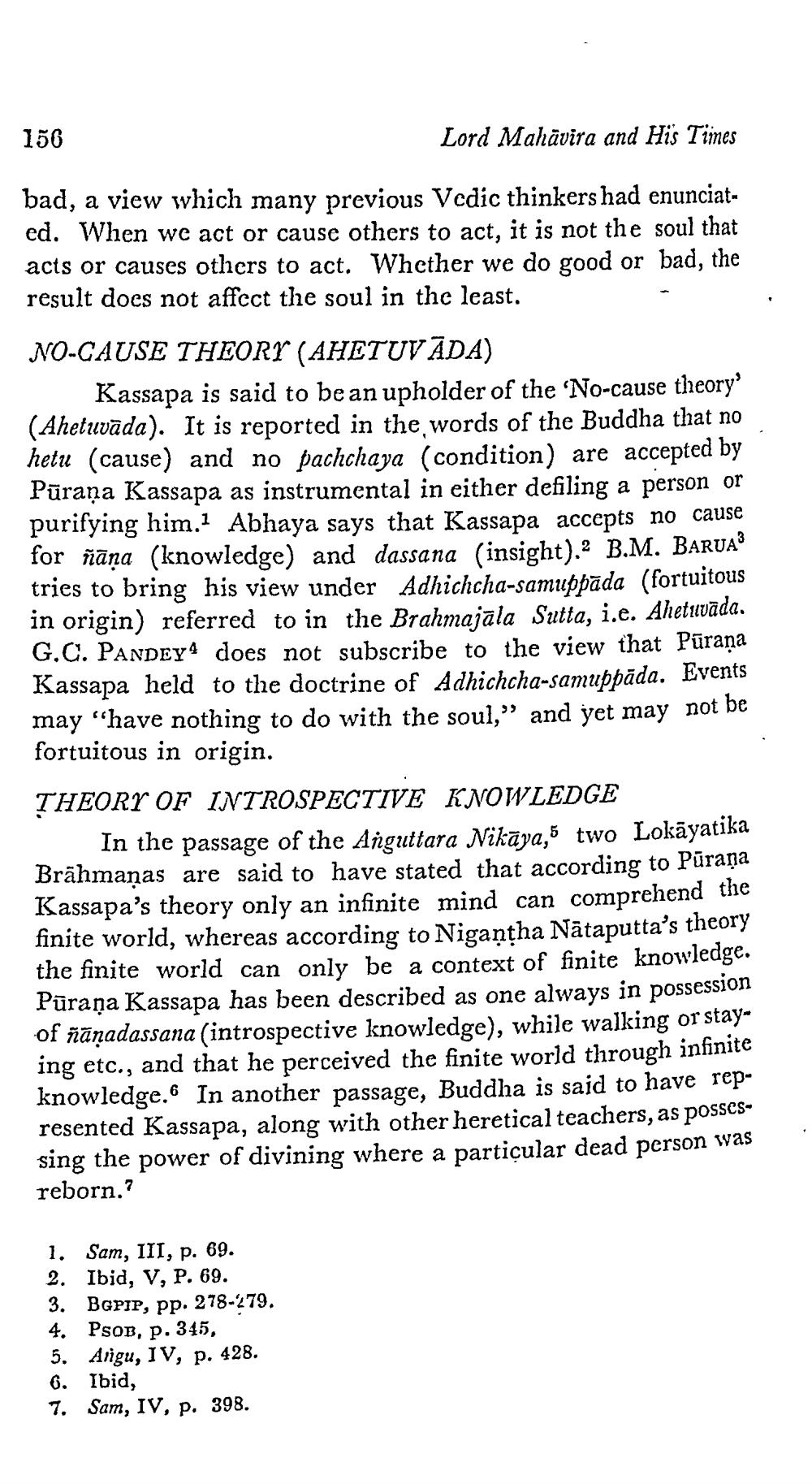________________
156
Lord Mahävira and His Times
bad, a view which many previous Vcdic thinkers had enunciated. When we act or cause others to act, it is not the soul that acts or causes others to act. Whether we do good or bad, the result does not affect the soul in the least. NO-CAUSE THEORY (AHETUVĀDA)
Kassapa is said to be an upholder of the 'No-cause theory' (Ahetuvāda). It is reported in the words of the Buddha that no hetu (cause) and no pachchaya (condition) are accepted by Pūraņa Kassapa as instrumental in either defiling a person or purifying him.1 Abhaya says that Kassapa accepts no cause for ñāna (knowledge) and dassana (insight).2 B.M. BARUA tries to bring his view under Adhichcha-samuppāda (fortuitous in origin) referred to in the Brahmajāla Sutta, i.e. Ahetuvāda. G.C. PANDEY4 does not subscribe to the view that Pūraņa Kassapa held to the doctrine of Adhichcha-samuppāda. Events may "have nothing to do with the soul,” and yet may not be fortuitous in origin. THEORY OF INTROSPECTIVE KNOWLEDGE
In the passage of the Anguttara Nikāya,5 two Lokāyatika Brāhmaṇas are said to have stated that according to Pūraņa Kassapa's theory only an infinite mind can comprehend the finite world, whereas according to Nigantha Nātaputta's theory the finite world can only be a context of finite knowledge. Pūraņa Kassapa has been described as one always in possession of ñāņadassana (introspective knowledge), while walking or staying etc., and that he perceived the finite world through infinite knowledge. In another passage, Buddha is said to have represented Kassapa, along with other heretical teachers, as possessing the power of divining where a particular dead person was reborn.?
1. Sam, III, p. 69. 2. Ibid, V, P. 69. 3. BGPIP, pp. 278-279. 4. Psob, p. 345, 5. Angu, IV, p. 428. 6. Ibid, 7. Sam, IV, p. 398.




